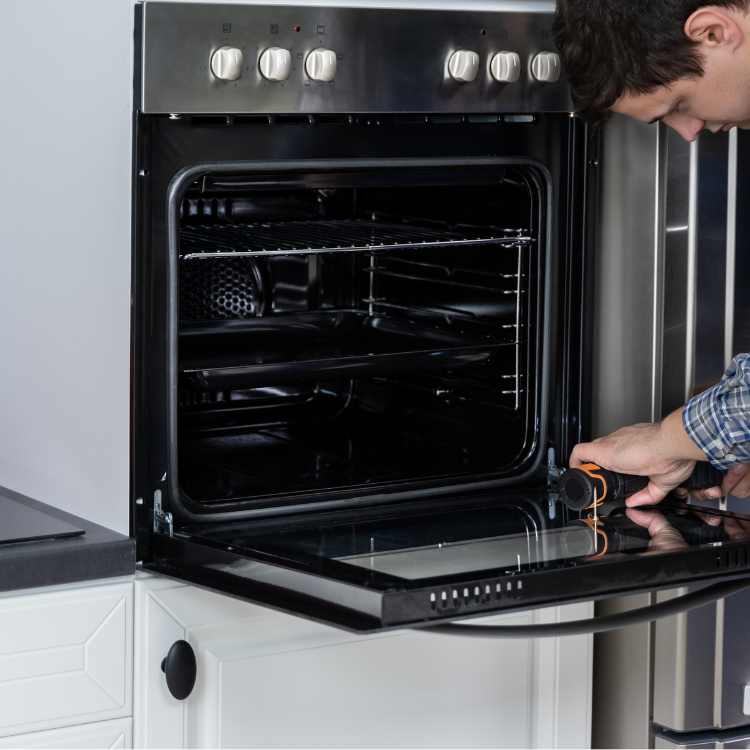Ovens and ranges are essential home appliances that we rely on daily for preparing meals. When issues arise, they can disrupt daily routines, especially for busy households in Plano, TX. Understanding common oven and range problems, and how to address them, can save time, money, and stress. Whether you’re dealing with uneven heating or a malfunctioning ignition, this blog post will explore various issues you might encounter with your oven or range and provide some insights on how to fix them. While some problems may be solved with a little troubleshooting, others require professional help, and that’s where Texas True Appliance Repair comes in to ensure that your appliances are back in working order.
Key Takeaway: Addressing common oven and range issues early can prevent major repairs. Some fixes are simple, while others may require expert attention.
Uneven Heating in the Oven
Causes of Uneven Heating
Uneven heating is a common complaint among oven users, leading to improperly cooked food. One cause could be a faulty bake element. The bake element is the part responsible for providing heat, and if it malfunctions, the oven won’t distribute heat evenly. Another potential cause could be a damaged thermostat. A broken thermostat will fail to regulate the oven’s temperature accurately. Lastly, oven door seals can sometimes wear out or become damaged, letting heat escape and resulting in uneven cooking.
Signs and Symptoms
If you notice that your baked goods come out undercooked on one side, or food cooks faster on certain shelves, uneven heating could be to blame. Test the oven’s temperature with a thermometer to see if it matches the settings on the control panel. You may also notice burnt spots or unevenly browned food, which often indicates poor heat distribution.
Simple Fixes
One way to resolve uneven heating is to inspect and replace the bake element if it’s visibly damaged or not heating. A malfunctioning thermostat can also be replaced, but this is a more complex job, often requiring professional assistance. Finally, ensuring the oven door seals are intact can make a big difference. If they’re worn, replace them to keep the heat where it belongs.
Oven Not Heating at All
Potential Electrical Issues
When an oven fails to heat up entirely, the problem could be electrical. In many cases, a blown fuse or a tripped circuit breaker is the cause. Ovens and ranges draw significant amounts of power, and even a small electrical issue can prevent the oven from heating. Another possibility is a damaged wiring connection inside the oven, which will require professional repair.
Problems with the Heating Elements
If the oven’s heating elements are damaged or worn out, the oven will not produce any heat. This can happen over time due to constant use, and it is especially common in older appliances. The bake or broil elements might need to be tested and replaced.
Checking the Ignition System
For gas ovens, a faulty ignition system could be the reason the oven won’t heat up. The igniter might be weak or completely broken. Testing and replacing the igniter can resolve the issue, but it’s a good idea to consult a professional for this kind of repair.
Gas Burner Won’t Ignite
Clogged Burner Openings
Gas burners depend on a steady flow of gas through small openings, and these can become clogged over time due to grease and debris buildup. This will prevent the burner from igniting properly or lead to uneven flames. Cleaning the burner with a needle or brush may solve the issue.
Faulty Igniter
Just like the oven, if the igniter for the gas burners on your range is not functioning correctly, the burners won’t light. A weak igniter may still spark but won’t be able to ignite the gas efficiently, while a broken igniter will fail entirely. Replacing the igniter is typically a straightforward fix.
Malfunctioning Spark Module
The spark module is responsible for creating the spark needed to ignite the burner. If this part fails, none of the burners will light. This is an internal part that might require professional diagnosis and repair to avoid electrical hazards.
Oven Temperature Not Matching Settings
Calibration Issues
Sometimes, the oven temperature may not match what you set on the control panel. This discrepancy could be due to calibration issues. Modern ovens have built-in calibration settings that you can adjust. However, it’s best to consult your owner’s manual or seek professional guidance from an appliance repair expert in Plano to recalibrate the oven correctly.
Faulty Thermostat
As mentioned earlier, the thermostat regulates the oven’s temperature. A faulty thermostat could cause the oven to be much hotter or colder than the setting indicates. Replacing the thermostat should restore the proper temperature control.
Problems with the Temperature Sensor
The temperature sensor is another vital component that measures the oven’s internal temperature. If it becomes damaged or disconnected, the oven won’t heat to the correct level. This problem is more common in electric ovens, and replacing the sensor may be necessary.
Strange Odors or Smoke During Use
Grease and Food Debris
If your oven emits strange odors or smoke, grease and food debris stuck on the oven walls or the heating elements might be the cause. Regular cleaning can help prevent this buildup from becoming a problem. A simple wipe-down after each use will keep grease from burning during the next cooking session.
Faulty Electrical Components
In some cases, strange odors could indicate burning electrical components. If you notice a plastic or rubber-like burning smell, stop using the oven immediately and seek professional help from a service provider like Texas True Appliance Repair to inspect and repair the issue.
Ventilation Problems
Poor ventilation can also lead to smoke or odors. Make sure your kitchen is well-ventilated when using the oven. If the issue persists, there may be a deeper problem with the oven’s ventilation system that requires expert attention.
Answering Common Questions
Why is my oven making strange noises? Strange noises could be caused by a faulty fan or a loose part inside the oven. If the sound is a high-pitched squeal, the fan might need to be replaced.
Can I use my oven if the door doesn’t close properly? Using an oven with a door that won’t close is not advisable. Heat will escape, which could result in undercooked food and potential safety hazards.
How often should I clean my oven to avoid problems? It’s a good idea to clean your oven at least once a month to remove grease and food buildup. This will help prevent odors, smoke, and even potential fires.
Regular Maintenance Prevents Major Issues
Maintaining your oven and range regularly is key to preventing serious problems. Wiping down surfaces after use, keeping burners clean, and checking electrical connections can keep your appliance running smoothly for years.
Professional Help for Tough Repairs
While some oven and range issues are easy to fix, others require professional repair services. If you live in Plano, TX, and are experiencing any problems with your oven, don’t hesitate to contact the experts at Texas True Appliance Repair. Our trained technicians can diagnose the issue and get your appliance back to peak performance.
Trust Texas True Appliance Repair for All Your Appliance Needs
Whether it’s a simple fix or a more complicated issue, Texas True Appliance Repair is your trusted partner for appliance repairs in Plano. From refrigerators to dishwashers, our skilled team is ready to assist with any repair needs.
For more information on other appliances, such as dishwashers or refrigerators, explore our resources to understand how each appliance works and the common problems you might encounter.

